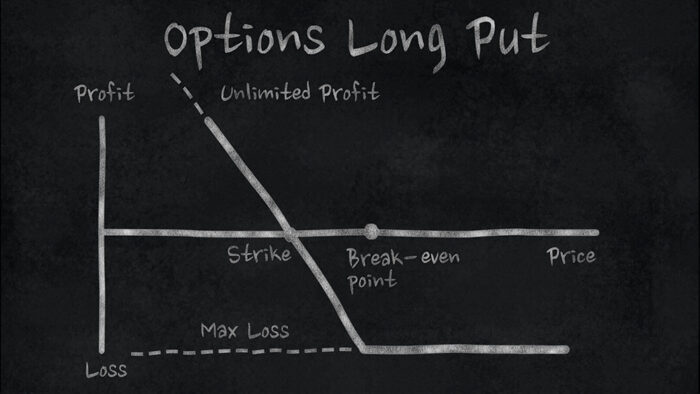EXECUTIVE SUMMARY
- Companies that went public through SPACs in 2020 and 2021 have struggled this year due to inflation and, most recently, a weakening economy.
- SPACs have gotten a bad reputation for making unproven, unprofitable companies public, ultimately leading to a majority underperforming the broader market and a few even going out of business soon after their debut.
- However, SPACs have also taken established companies public, like convenience store chain operator Arko, which has relatively fared better.
DETAIL
Happy Sunday, Friends!
Companies that went public through SPACs in 2020 and 2021 have struggled this year due to inflation and, most recently, a weakening economy. SPACs have gotten a bad reputation for making unproven, unprofitable companies public, ultimately leading to a majority underperforming the broader market and a few even going out of business soon after their debut. However, SPACs have also taken established companies public, like convenience store chain operator Arko, which has relatively fared better. Arko has had a successful track record of rolling up smaller operators into their business, increasing profits, and using the momentum to grow their business. Furthermore, the company’s business model also seems perfect for the current economic downturn, considering that it is essential. Is Arko a safe bet for investors amidst uncertain times, or will it share the same fate as other De-SPACs?
Consolidating Convenience
SPAC Haymaker II Acquisition took GPM Investments convenience stores public under the Arko Umbrella, a conventional deal compared to most other SPAC mergers. Founded in 2003, Arko is now the sixth largest convenience store operator in the United States, with over 3,000 locations across the United States. Arko primarily operates through the Retail, Wholesale, and GPM Petroleum segments. The 1,400 retail locations directly sell fuel and consumables to customers, while the 1,600 wholesale locations supply fuel to third-party dealers and agents.
The company’s petroleum segment supplies fuel with independent dealers and traders. Convenience stores have existed for nearly a hundred years, accounting for almost 34% of all brick-and-mortar stores in the US, generating billions of dollars in revenues and profits. New Investors in the space may ask if the business model is so great, why aren’t more operators rushing into the industry? The first thing to know about convenience stores is that the industry is highly fragmented, with most stores owned and run by mom-and-pop operators.
There are over 153,000 convenience stores across the United States, but over 63% of convenience stores are part of chains that are ten units or less. These operators have traditionally struggled compared to their larger counterparts, as they haven’t benefitted from the same scale and purchasing power. Local convenience stores have also struggled to negotiate high-profile brand deals, have had lower profits, and worked with higher debt loads.
On the other end of the spectrum, the ten largest convenience stores in the US accounted for less than 20% of the total stores. This presents an opportunity for a company like Arko, which has an extensive track record of successful Mergers and Acquisitions, to become a consolidator in the space. Since 2011, the company has completed 21 deals, growing its footprint tenfold. Once Arko has completed a transaction, profits tend to increase dramatically, as the cost advantages coupled with store remodels help drive higher revenues and profits.
Recession Resilient
Arko has had a successful history of integrating smaller acquisitions, growing them at scale, and reaping the benefits, but there are other benefits to owning a convenience store operator during uncertain times. Convenience stores have been historically recession resilient, posting sales growth for over twenty years through the Dotcom crash, the great financial crisis, and most recently, the covid-19 pandemic-induced recession.
In many ways, the pandemic was a litmus test for convenience store operators and Arko in particular, as many feared that lockdowns would prompt shoppers to switch to online purchases for the foreseeable future. Despite the adverse operating conditions, Arko only saw a brief dip in sales for two months when consumers were strictly quarantined, followed by which the company saw a strong rebound in sales. While consumers have shifted online for big-ticket purchases, the same cannot be said for essentials and everyday purchases.
Arko has primarily been shielded away from online channels eating into the company’s sales due to two factors: Availability of Fuel and Access to Remote Areas. First, most Arko locations are tied with a fuel station, which is expected to stay in demand for the foreseeable future, even as prices continue to rise. The US Energy Information Administration (EIA) has projected that even if gas prices increase by 25%, automobile travel will only shrink by 1-2%.
In addition, the EIA estimates that despite the increased adoption of EVs, gasoline vehicles will retain the dominant fuel market share as a percentage of light-duty vehicle energy. Arko also benefits from its increased presence in remote and hard-to-access locations, catering primarily to rural America. In cities, the company has partnered with DoorDash to reach consumers quickly. The combination of access and its widespread presence has enabled Arko to grow its operations over the past two decades.
Financials and Valuation
Arko has seen its revenues rebound quickly after initially declining during the pandemic. The company delivered revenues of $7.3 billion in 2021 (vs. $3.94 billion in 2020) and is projected to generate nearly $8.6 billion. While inflation pressures have been hitting retail stores, Arko has offset this through higher fuel margins, which has led to Net income jumping six-fold to $66 million compared to 2020. As a result, the company is currently trading at a trailing Price/Earnings valuation of close to 18x (company market cap is now close to $1.11 billion), which is reasonable compared to its peers.
Management at Arko is also consistently delivering value to shareholders through a previously instituted $50 million share buyback and a quarterly dividend payout. One area of concern investors will have is about the company’s liquidity and balance sheet going forward since it will need to take up debt to fund its acquisitions, which can weigh down on profits if interest rates continue to rise.
This doesn’t seem to be a concern over the short term, as the company had $285 million in cash and $445 million in a line of credit, which should help fund short-term growth objectives. Over the longer term, the company could see its profits weighed down by its leveraged balance sheet if revenues don’t grow at the same pace or start declining.
Bottom Line
Arko remains an attractive investment opportunity with a successful record of successfully integrating smaller acquisitions into the company, unlocking value through integration and remodeling, resulting in higher revenues and profits over the long term. Furthermore, the company remains recession resilient, protected against black-swan events like the pandemic, and isn’t impacted as much by the volatility in gas prices and the prevailing interest rates in the economy. Coupled with an agenda of delivering value to shareholders through buybacks and dividends, Arko stands out from the pack of De-SPACs, both operationally and financially.
—
Originally Posted November 27, 2022 – Convenience is King
Disclosure: Smartkarma
Smartkarma posts and insights are provided for informational purposes only and shall not be construed as or relied upon in any circumstances as professional, targeted financial or investment advice or be considered to form part of any offer for sale, subscription, solicitation or invitation to buy or subscribe for any securities or financial products. Views expressed in third-party articles are those of the authors and do not necessarily represent the views or opinion of Smartkarma.
Disclosure: Interactive Brokers
Information posted on IBKR Campus that is provided by third-parties does NOT constitute a recommendation that you should contract for the services of that third party. Third-party participants who contribute to IBKR Campus are independent of Interactive Brokers and Interactive Brokers does not make any representations or warranties concerning the services offered, their past or future performance, or the accuracy of the information provided by the third party. Past performance is no guarantee of future results.
This material is from Smartkarma and is being posted with its permission. The views expressed in this material are solely those of the author and/or Smartkarma and Interactive Brokers is not endorsing or recommending any investment or trading discussed in the material. This material is not and should not be construed as an offer to buy or sell any security. It should not be construed as research or investment advice or a recommendation to buy, sell or hold any security or commodity. This material does not and is not intended to take into account the particular financial conditions, investment objectives or requirements of individual customers. Before acting on this material, you should consider whether it is suitable for your particular circumstances and, as necessary, seek professional advice.
Disclosure: Alternative Investments
Alternative investments can be highly illiquid, are speculative and may not be suitable for all investors. Investing in Alternative investments is only intended for experienced and sophisticated investors who have a high risk tolerance. Investors should carefully review and consider potential risks before investing. Significant risks may include but are not limited to the loss of all or a portion of an investment due to leverage; lack of liquidity; volatility of returns; restrictions on transferring of interests in a fund; lower diversification; complex tax structures; reduced regulation and higher fees.




















